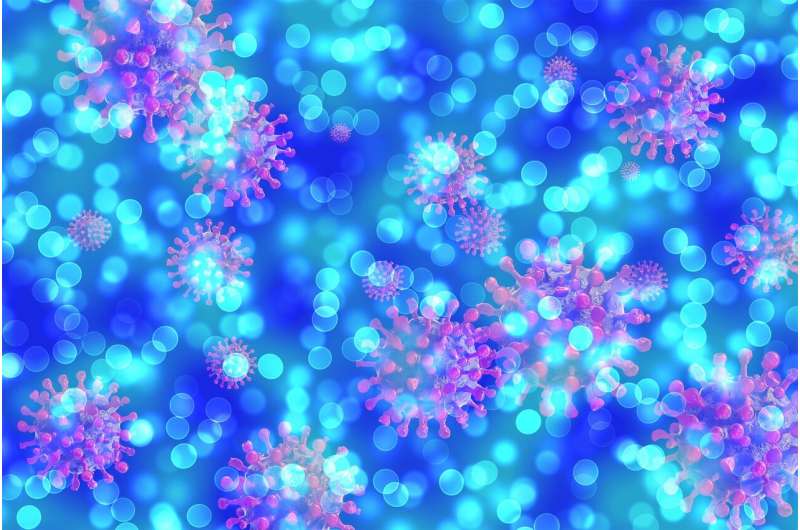Diabetes as a consequence of COVID-19

The SARS-CoV-2 coronavirus, which causes the coronavirus disease COVID-19, can penetrate many different body cells. This has been shown in multiple research papers published in recent weeks. Thus, not only can the function of the respiratory tract and the lungs be severely disrupted, but also numerous other organs. The SARS-CoV-2 virus can also penetrate the so-called beta cells in the pancreas and damage them, as a research team involving the Cluster of Excellence "Precision Medicine in Chronic Inflammation" has now observed for the first time.
These cells are responsible for producing the insulin required for a healthy metabolism. A SARS-CoV-2 infection can apparently disrupt this function, which as a result leads to diabetes. The observations were published by Professor Matthias Laudes, Schleswig-Holstein Excellence-Chair for endocrinology, diabetology and clinical nutritional medicine at Kiel University and his research team of the Clinic of Internal Medicine I at the University Medical Center Schleswig-Holstein (UKSH), Campus Kiel, together with researchers from Munich and Dresden, in the renowned scientific journal Nature Metabolism.
The publication is an initial description of insulin deficiency diabetes after a COVID-19 illness, based on an observed case. "A 19-year-old patient came to us in the clinic with newly-developed severe diabetes with insulin deficiency. It could be shown that he apparently had experienced a SARS-CoV-2 infection a few weeks before," reported Laudes, who is also a member at the steering committee of the Cluster of Excellence "Precision Medicine in Chronic Inflammation" (PMI). "Such an insulin deficiency diabetes, i.e. type 1 diabetes, is usually triggered by an autoimmune response, in which the immune system incorrectly identifies the beta cells in the pancreas as foreign and attacks them. But this autoimmune response was not present in this patient. We assume that here, the SARS-CoV-2 virus itself attacked the beta cells."
This also fits with the fact that the beta cells possess a crucial receptor: the ACE2 receptor. The SARS-CoV-2 virus can specifically bind with this receptor. The receptor is also used by the virus as an entry point into the other body cells which it attacks.
The lead author of the publication is the medical doctor and early career researcher Dr. Tim Hollstein, who only joined the department of Professor Laudes at the beginning of this year, after a research stay at the National Institute of Health (NIH) in the U.S. "I am delighted that Dr. Hollstein could make such an important observation as a young early career researcher. This newly-discovered metabolic disease demonstrates how important a detailed clinical and laboratory chemical characterization of COVID-19 can be for patients at a university endocrinological center," said Laudes.
Under the leadership of cluster spokesperson Professor Stefan Schreiber, the UKSH is also conducting a long-term follow-up study into COVID-19 patients under the name "COVIDOM," in which all persons reported as infected in Schleswig-Holstein will be invited to participate.
"This success of Professor Laudes and his team underlines the importance of accurate follow-up observation after COVID-19. We are certain that as a result of this disease, even more health-relevant metabolic problems can arise," said PMI spokesperson Professor Stefan Schreiber, head of "COVIDOM" and director at the Department of Internal Medicine I at the UKSH, Campus Kiel.
More information: Tim Hollstein et al. Autoantibody-negative insulin-dependent diabetes mellitus after SARS-CoV-2 infection: a case report, Nature Metabolism (2020). DOI: 10.1038/s42255-020-00281-8




















